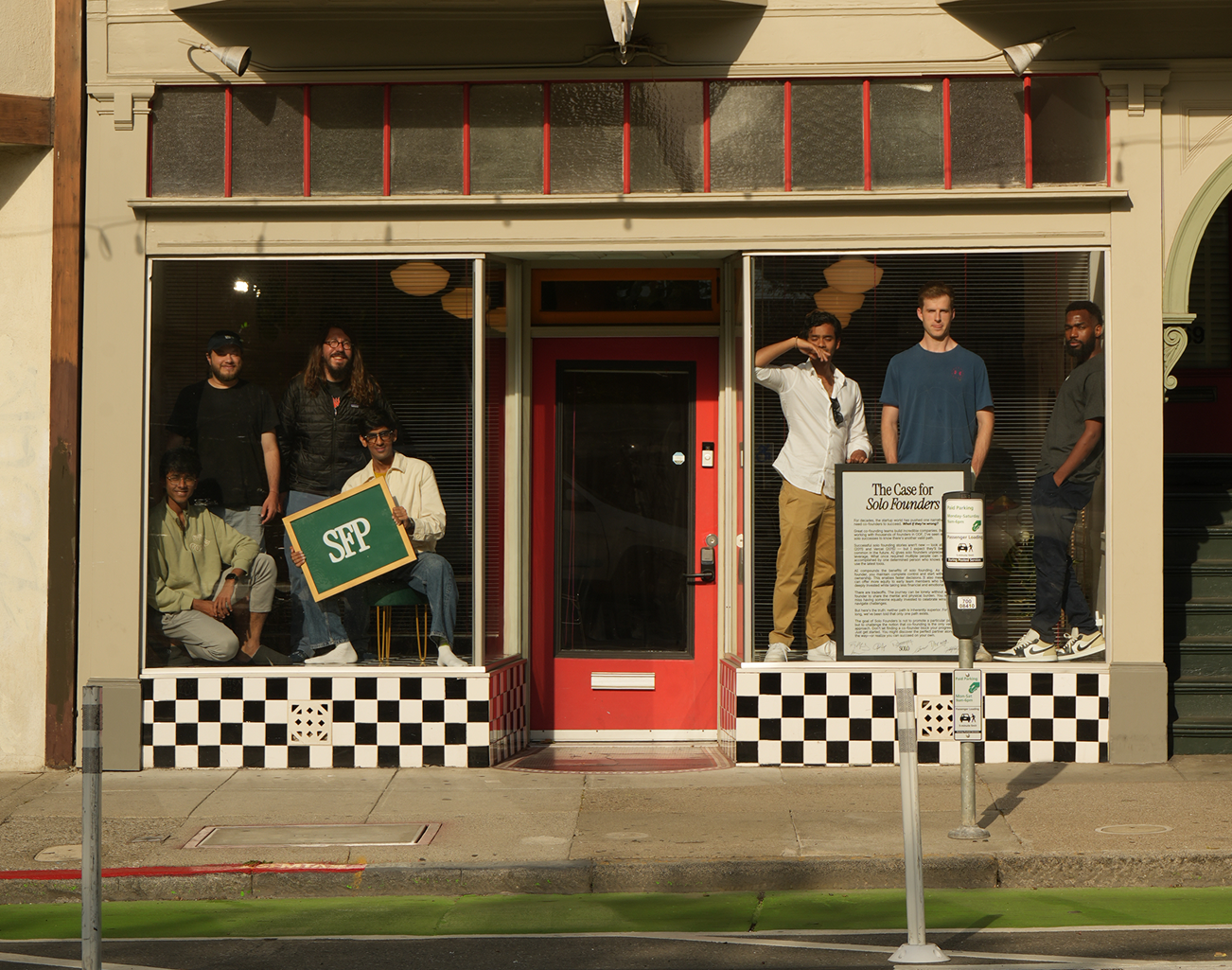This Solo Founder Can Predict the Future

"2020, running out of money, solo founder, HQ in my makeshift bathroom office. Little did I know Polymarket was going to change the world."
Can you predict the future? Shayne Coplan bets that we all can. The NYSE's parent co certainly thinks so, investing $2B in Coplan's company, Polymarket, at an $8B valuation. The deal has crowned 27-year-old Shayne the world’s youngest self-made billionaire.
What makes Polymarket so incredible is that it boasts 90%+ accuracy in predicting events a full month out. Unlike the company's obsessive focus on odds and chance, however, Coplan's story has very little to do with either. In fact, Shayne Coplan's story is written in spite of the odds he was dealt — a university dropout building something new without co-founders, against an establishment that tried to shut him down.
A solo founder beating the odds.
Five years ago, Coplan was a broke college dropout cataloging his apartment furniture to figure out what he could sell for rent money. Today, the company he’s building is credited with playing a massive role in bringing prediction markets mainstream.
Coplan was accepted to NYU, only to drop out with dreams of making it big in crypto. Eventually he stumbled across economist Robin Hanson's academic research on prediction markets: the idea that collective betting reveals the most probable outcomes of future events. In early 2019, he wrote Hanson a paragraphs-long email proclaiming he wanted "to be the person to bring prediction markets to life." Hanson ignored it.
"I think having a background that was so uncredentialed, it was very clear to me I was a goner if I was gonna go the path everyone else was going. I just never got picked. That was never me. It was always like, I'm gonna have to go stake out my own way and take the side roads to go find my own destination," he told New York Magazine.
When COVID-19 hit in March 2020, Coplan saw his moment. People were stuck at home, desperate for answers about when schools would reopen, when a vaccine would arrive, how long the pandemic would last. Traditional institutions struggled to provide reliable forecasts. He began building Polymarket from his bathroom and launched the platform in June 2020 — at 21 years old, completely alone. "In my mind, it would be like, Who would want to work with me? I got nothing," he said.
No co-founder. No technical co-pilot. Just Shayne, a bathroom office, and an unshakeable conviction that prediction markets needed to exist.
With the 2020 election looming, Coplan went full hand-to-hand promotion. He ran Polymarket’s socials himself, and after each post, he’d DM investors and anyone in his orbit to boost it — or place a bet. One early investor said, “He sent us practically every tweet, day after day.”
"2020, running out of money, solo founder, HQ in my makeshift bathroom office," Coplan later posted. "Little did I know Polymarket was going to change the world."
Building through controversy.
Here's how Polymarket works: users bet real money (in crypto) on the outcomes of real-world events. Politics, Fed rate cuts, Taylor Swift's Super Bowl appearances — if there's uncertainty about it, someone's betting on it. The platform settles wagers transparently on the blockchain, creating what Coplan calls a "global truth machine."
Coplan’s approach to building Polymarket mirrors what Travis Kalanick’s strategy was with Uber: launch first, deal with regulators after. He described Polymarket as the “Napsterization of finance.” Coplan clearly believed that prediction markets were inevitable, and he was simply waiting for legislation to catch up.
But the move-fast-and-ask-permission-later approach came with serious consequences. In January 2022, the CFTC fined Polymarket $1.4M for operating an unlicensed exchange, forcing the company to ban US-based users for years. Being locked out of the American market would kill most startups. Coplan kept building.
A breakthrough came during the 2024 presidential election, still banned in the U.S. While polls showed a tight race between Trump and Harris, Polymarket users wagered $3.2 billion on the outcome. Polymarket exploded in popularity during the race internationally, while American users were forced to use VPNs to access the site. The question that first catapulted Coplan into being an unlikely main character of the election was whether Joe Biden would quit the race — which Polymarket's predictions got right almost immediately after the debate, when many pundits and Biden himself were still denying it.
But success brought scrutiny. A week after the 2024 election, on November 13th at 6am, eight FBI agents burst through Coplan's Soho apartment door with a battering ram. They seized his phone and electronic devices, investigating whether Polymarket was still serving US users despite the 2022 ban. The company called it "obvious political retribution." No charges were filed.
The solo founder had made a calculated bet: build something so valuable that the rules would eventually change in his favor. Coplan popped up on X later that day: "new phone, who dis?"
Wall Street validation.
By mid-2025, the regulatory clouds had cleared. The Justice Department and CFTC dropped their investigations and Polymarket acquired CFTC-licensed exchange QCEX for $112 million, allowing it to resume US operations legally. It’s difficult to communicate how triumphant a victory this was.
From that point forward, Polymarket’s odds just got better and better. The latest headline: Intercontinental Exchange invests $2B in Polymarket at an $8 billion valuation. This news isn’t just about the money — it’s validation from the establishment itself. The parent company of the New York Stock Exchange is betting big on prediction markets.
For a solo founder who started building in a bathroom five years earlier, it was vindication. Coplan had proved his ability to persevere through some of the most difficult challenges a startup can face. "It's sort of like the slowness of the takeoff of Airbnb but combined with the legal frustrations of Uber," said Joey Krug, who joined Founders Fund and led a $45 million investment round after initially rebuffing Coplan's repeated pitches.
What to take away from Coplan’s story.
Shayne Coplan practices a kind of anti-fragile opportunism that gets stronger in chaos. He turns shocks and setbacks into chances to advance. During Trump's Crypto Ball during inauguration weekend, Coplan ran into Mark Pincus, the billionaire founder of Zynga, stuck in line. Coplan said, "Just follow me" to the VIP section. "He said, 'Just have the confidence,' and he just walked us in," Pincus mentioned.
From bathroom office to walking billionaires past velvet ropes — all started by a hungry dropout who believed markets could reveal truth better than polls, pundits, or traditional media. From bathroom office to walking billionaires past velvet ropes. And he didn't need a co-founder to prove it.

Solo Founders Program
Apply for our January Cohort
"I don't feel like a solo founder here. Here I effectively have five co-founders — available when it matters, while everyone still runs their own company."


